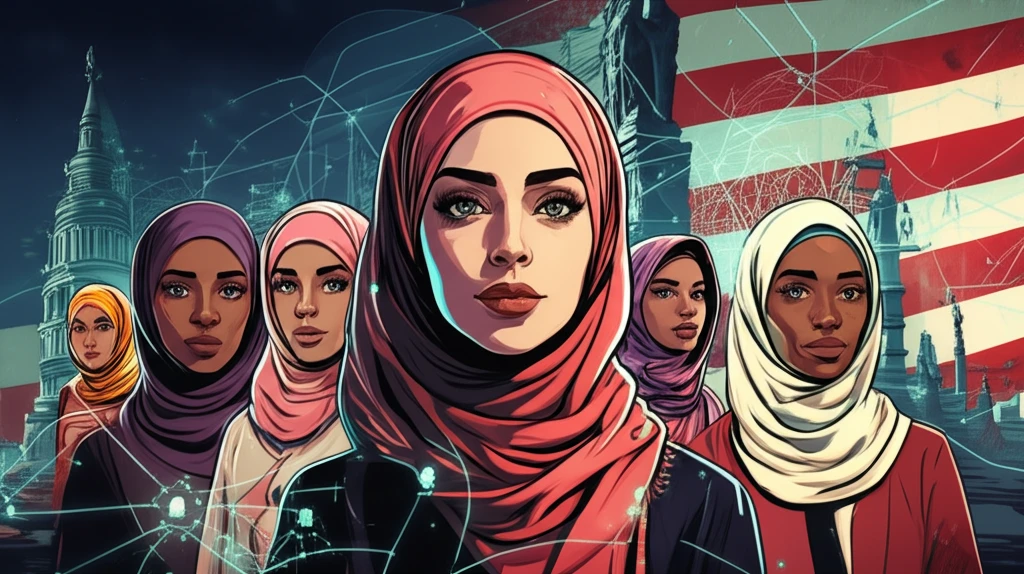
Unveiling the Headscarf Effect: Social Networks, Political Engagement, and Muslim Women
"Does wearing a headscarf influence political participation among Muslim-American women? Dive into the power of social connections and religious identity."
In an era marked by increasing scrutiny of religious practices and heightened political polarization, the experiences of Muslim-American women offer a unique lens through which to examine the intersection of faith, identity, and civic engagement. The Islamic headcovering, or hijab, a visible symbol of religious identity, has become a focal point of debate, both within and outside the Muslim community. Does wearing a headscarf empower or limit a woman's participation in the political sphere? How does it shape her social connections and sense of belonging?
Recent research delves into these complex questions, exploring the relationship between headcovering and political participation among Muslim-American women. By analyzing survey data from a diverse group of participants, researchers have uncovered surprising insights into the power of social networks, the influence of religious institutions, and the nuanced ways in which Muslim women navigate their identities in the American political landscape.
This article unpacks the key findings of this study, shedding light on the multifaceted factors that influence political engagement among Muslim-American women. We'll explore the role of strong ties within religious communities, the importance of weak ties that bridge diverse groups, and the ways in which headcovering can both foster solidarity and create barriers to broader participation.
How Headcovering Shapes Social Networks and Political Action

The study's central finding revolves around the impact of headcovering on the formation of social networks. Women who wear the headscarf are more likely to form strong ties within predominantly Muslim friend networks. While these networks provide a sense of community and support, they can also inadvertently decrease the likelihood of formal political participation, such as voting or affiliating with a political party.
- Strong Ties: Close-knit relationships within predominantly Muslim friend networks. Provides community and support but can limit exposure to diverse perspectives.
- Weak Ties: Connections that bridge diverse groups and provide access to broader networks, information, and opportunities. Facilitates political mobilization and civic engagement.
Finding a Balance: Headcovering, Community, and Civic Engagement
The research underscores the complex interplay between religious identity, social connections, and political engagement among Muslim-American women. While headcovering can serve as a powerful symbol of faith and solidarity, it's crucial to foster opportunities for broader social interaction and civic participation. By promoting weak ties and bridging diverse communities, religious institutions and community organizations can empower Muslim women to fully engage in the American political landscape while maintaining their cultural and religious identities.
